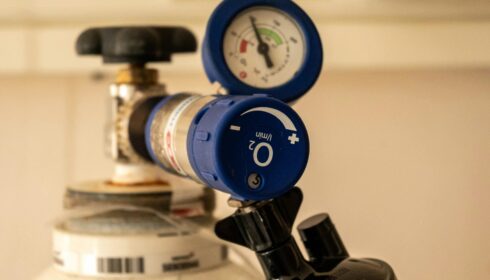COLCOT

Efficacy and Safety of Low-Dose Colchicine
after Myocardial Infarction
Tardif. NEJM 2019 published on-line Nov 16, 2019. DOI: 10.1056/NEJMoa1912388
Clinical Question
- In patients post myocardial infarction, does low dose colchicine compared with placebo, reduce ischaemic cardiovascular events?
Background
- Evidence supports the role of inflammation in atherosclerosis and its complications
- The CANTOS study reported that the monoclonal antibody canakinumab, that inhibits interleukin-1b, decreased cardiovascular events but also increased fatal infections
- Colchicine is an anti-inflammatory that is used to treat gout & pericarditis. It is hypothesised that this may reduce the risk of atherosclerotic events in patients with coronary artery disease
Design
- Randomised controlled trial
- 1:1 ratio
- Double blinded, placebo-controlled
- Blinded assessment of outcomes
- Registered on clinicaltrials.gov
- Sample size calculation: 4500 patients would give 80% power with a false positive rate of 5% assuming a 27% lower relative risk of the primary outcome with colchicine, based on an assumed event rate in the placebo group of 7%
Setting
- 167 centres in 12 countries (predominately Canada, South America & Europe)
- Trial enrolment December 2015 – August 2018
Population
- Inclusion criteria:
- Adult patients who had had a myocardial infarction within the last 30 days
- Had completed any planned percutaneous revascularisation procedures
- Were treated according to national guidelines that included the intensive use of statins
- Exclusion criteria:
- Severe heart failure, ejection fraction <35%
- Stroke within previous 3 months
- Type 2 MI
- CABG within previous 3 years or planned
- History of non-cutaneous cancer within the previous 3 years
- Inflammatory bowel disease or chronic diarrhoea
- Neuromuscular disease, severe renal or hepatic disease, drug or alcohol abuse, long term steroid use
- 4745 patients randomised
- For 23 patients (0.5%) vital status not available
- 89 (1.9%) patients lost to follow up
- 30 patients (0.6%) withdrew consent
- Comparing baseline characteristics of intervention vs. control group
- Age: 60.6 vs. 60.5 years
- Female sex: 19.9% vs. 18.4%
- White race: 73% vs. 72%
- Time from index MI to randomisation: 13.4 vs. 13.5 days
- PCI for index MI: 92.7% vs. 93.3%
- Medication use
- Aspirin: 98.6% vs. 98.9%
- Other anti-platelet agent: 97.6% vs. 98.2%
- Statin: 98.9% vs. 99.1%
- Beta-blocker: 89.4% vs. 88.3%
Intervention
- Low dose colchicine
- 0.5mg once daily
- Median duration of trial drug: 19.6 months
- At the end of the trial, the trial regimen had been discontinued in 18.4% of patients with a median duration of 7.1 months
Control
- Placebo
- Median duration of trial drug was 19.5 months
- At the end of the trial, the trial regimen had been discontinued in 18.7% of patients with a median duration of 6.1 months
Management common to both groups
- Treated according to national guidelines that included the intensive use of statins
Outcome
- Primary outcome: Composite of death from cardiovascular causes, resuscitated cardiac arrest, myocardial infarction, stroke or urgent hospitalisation for angina leading to coronary revascularisation – significantly reduced in colchicine group
- 5.5% vs. 7.1% (Hazard ratio 0.77; 95% C.I. 0.61-0.96, p=0.02)
- NNT 63
- Fragility index 5 patients
- Secondary outcomes: – comparing intervention vs. control group
- No significant difference in:
- Death from cardiovascular causes – no significant difference
- 0.8% vs. 1%
- HR 0.84; 95% C.I. 0.25-2.73
- Resuscitated cardiac arrest
- 0.2% vs. 0.3%
- HR 0.83; 95% C.I. 0.25-2.73
- Myocardial infarction
- 3.8% vs. 4.1%
- HR 0.91; 95% C.I. 0.68-1.21
- Death
- 1.8% vs. 1.8%
- HR 0.98; 95% C.I. 0.64-1.49
- Death from cardiovascular causes – no significant difference
- Significantly reduced in colchicine group
- Stroke
- 0.2% vs. 0.8%
- HR 0.26, 95% C.I. 0.1-0.7
- NNT 171
- Fragility index 3
- Urgent hospitalisation for angina leading to coronary revascularisation
- 1.1% vs. 2.1%
- HR 0.5, 95% C.I. 0.31-0.81
- NNT 96
- Fragility index 7
- Stroke
- Side effects
- Any related adverse event – no significant difference
- 16% vs. 15.8%, p=0.89
- Diarrhoea – no significant difference
- 9.7% vs. 8.9%, p=0.35
- Pneumonia – significantly increased in colchicine group
- 0.9% vs. 0.4%, p=0.03
- Any related adverse event – no significant difference
- No significant difference in:
Authors’ Conclusions
- In patients with a recent myocardial infarction, low dose colchicine significantly reduced ischaemic cardiovascular complications
Strengths
- Randomised controlled trial
- Blinding of outcome assessors
- Multi-centre, multi-national
- Followed standardised guideline
Weaknesses
- Composite outcome
- Primary outcome had a fragility index that was less that the number of patients whose vital status was unknown
- Duration of follow-up was relatively short at ~23 months
The Bottom Line
- In patients following myocardial infarction, the use of colchicine compared with placebo, started at a median of 13 days post-infarct, significantly reduced the composite outcome of ischaemic cardiovascular events
- This was primarily due to a reduction in the number of patients who had a stroke and the number of patients that had an urgent hospitalisation for angina leading to coronary revascularisation. There was no change in mortality
- Due to the low fragility index there should be some caution with the interpretation of these results
External Links
- [article] Efficacy and Safety of Low-Dose Colchicine after Myocardial Infarction
- [further reading] Trial presentation by primary author
Metadata
Summary author: David Slessor
Summary date: 21st November 2019
Peer-review editor: Duncan Chambler



